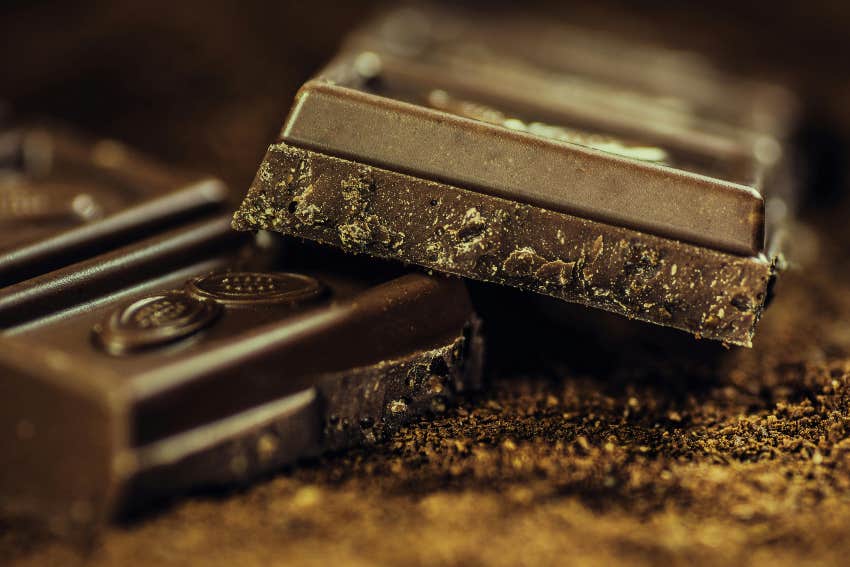Scientists Have Discovered 7 Reasons Why Humans Are Addicted To Everything Right Now
Why is everything in our culture so addictive?
 NicolasMcComber | Canva
NicolasMcComber | Canva Whether it’s love, intimacy, or alcohol, virtually all addictions share a similar profile. People who are addicted experience obsessive-compulsive cravings, desires, or behaviors, producing harmful consequences, feelings of helplessness, powerlessness, shame, and guilt over them, and an increasingly out-of-control, unmanageable lifestyle.
Scientists have discovered 7 reasons why humans are addicted to everything right now:
1. Neurotransmitters
An imbalance in neurotransmitters, the nervous system’s chemical messengers secreted through the reward centers in the body. Dopamine, for example, works with norepinephrine to regulate reward reinforcement and motivation-to-action.
Imbalanced dopamine leads to cravings such as caffeine, drugs, physical intimacy, chocolate, tobacco, alcohol, aspartame, sugars, and starches. Sound familiar?
 Pexels / Pixabay
Pexels / Pixabay
2. Digestion
According to Oregon State research, digestion is 80% of our immunity. When the body doesn’t have the minerals, enzymes, or good flora it needs to digest food properly, partially broken-down food particles get absorbed through a weakened intestinal wall.
This is called a leaky gut. The body doesn’t recognize the food because it’s the wrong kind of fuel and starts to attack what it perceives as foreign invaders, creating an autoimmune response and inflammation.
3. Probiotics
Beneficial bacteria in our soil and our gastrointestinal tract act like proactive antioxidants that transform and activate many nutrients, regulate hormonal and other processes, deactivate waste products, and reduce inflammation.
They’re essential to good digestion and act as a protective buffer to support the body’s first line of defense by, among other things, actually crowding out the bad bacteria.
Many things, including antibiotics, sugar, alcohol, chemicals, acidity, stress, heavy metals, fluorine, and bioengineered foods destroy or reduce friendly flora, producing what’s called dysbiosis.
4. Toxicity/excitotoxicity
Other things contribute to more stress on our digestive and immune systems. The buildup of waste products from poorly absorbed food and bad bacteria depresses cellular and other functions.
Many chemicals, like additives and artificial sweeteners, deplete minerals like magnesium and zinc and trigger or overstimulate nerve cells, which some practitioners believe is part of the hyperactivity and impulsiveness involved in ADHD and other addictive syndromes.
Our modern diet is notoriously low in glutathione, an essential element that helps to detoxify cells.
5. Poor nutrition
Many practitioners now acknowledge that addiction coincides with a condition of nutritional deficiency or starvation. In effect, like obesity, it is being overfed or overstimulated, yet undernourished.
Whether it lays the foundation for or stems from the addiction, poor nutrition is made worse by consuming an imbalanced diet with too much high-calorie, low-nutrient junk food, too many processed starchy/sugary carbohydrates, inadequate protein, and not enough vegetables.
6. Chemicals
Over 80,000 chemicals are used in the food and farming system, not all tested or listed on product labels — a fact prompting many wary consumers to say, “If I can’t pronounce it, I don’t need it.“
But while our FDA/USDA/EPA is charged with protecting our health, manufacturers are required to do the “safety” checking, and disturbing health/environmental problems with everything from additives to pesticides, from aspartame to glutamate to glyphosate, lead us to ask: Is the fox guarding the hen house?
7. GMO’s
According to research from the Environmental Working Group, Americans now unknowingly eat 193 lbs of genetically modified foods a year since they are not required to be labeled.
With no safety testing and less than 10 years of use, alarming problems are emerging in soil, animals, plants, and humans from widespread usage of glyphosate on hundreds of millions of acres of corn, soybeans, and sugar beets.
Normal psychological analysis, like most medicine, takes a “one problem/one solution” approach. But what about the increasing rates of multiple addictive health problems now showing up involving both substances and behaviors?
“We need a wider, more comprehensive approach to multiple addiction diagnosis and treatment,“ says Clinical Psychologist, Dr. James Slobodzien.
“Many progressive behavioral medicine practitioners have come to realize that although a disorder may be primarily physical or psychological in nature, it’s always a disorder of the whole person — not just of the body or the mind,” Dr. Slobodzien adds.
So what can we do about it?
Consider some of these suggestions to keep from becoming another statistic in this rising tide of addictions sweeping our world.
- Nourish yourself. Eat fresh, whole, organic, when possible, food in season, ideally from around where you live. Ditch the addictive junk food and processed carbohydrates
- Choose a balanced lifestyle. Good food, good company, exercise, sleep, relaxation, being social.
- Don’t just bury your feelings. Hiding, spacing out, or superseding your body’s natural signals when you’re under stress could be setting you up for trouble. Talk about or express your feelings instead of suppressing them. (Not on the dog.)
- Is it what you’re eating, or what’s eating you? Observe yourself, and become conscious when you start getting “cravings” or those “just got to have” feelings. Be honest with yourself. Are you hungry for that donut or deep down feel empty, upset, or rejected?
Nancy Lee Bentley is a dynamic holistic health Expert, visionary new thought leader, professional speaker, author, and coach.

